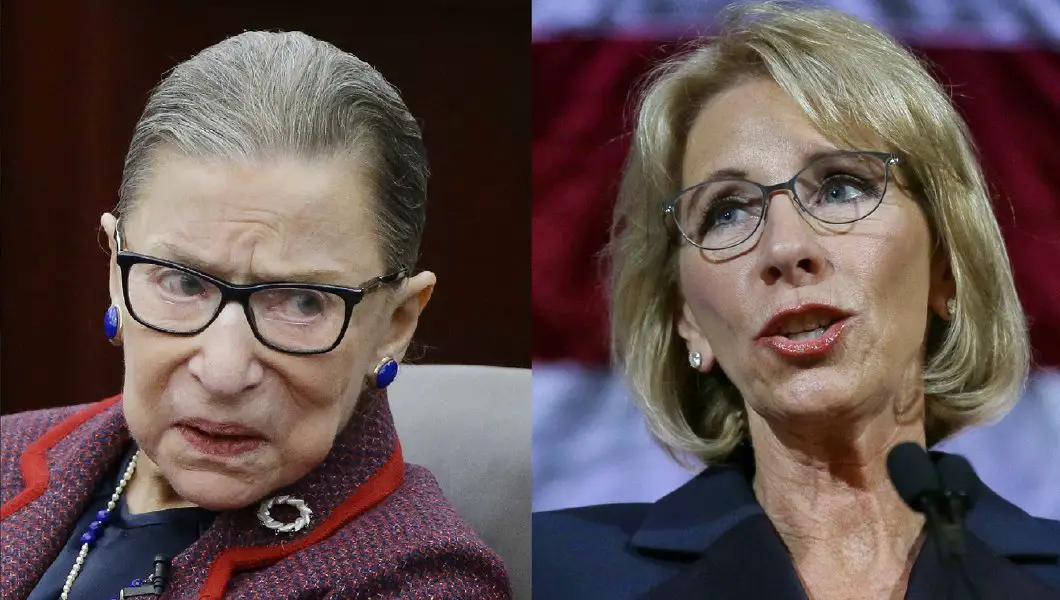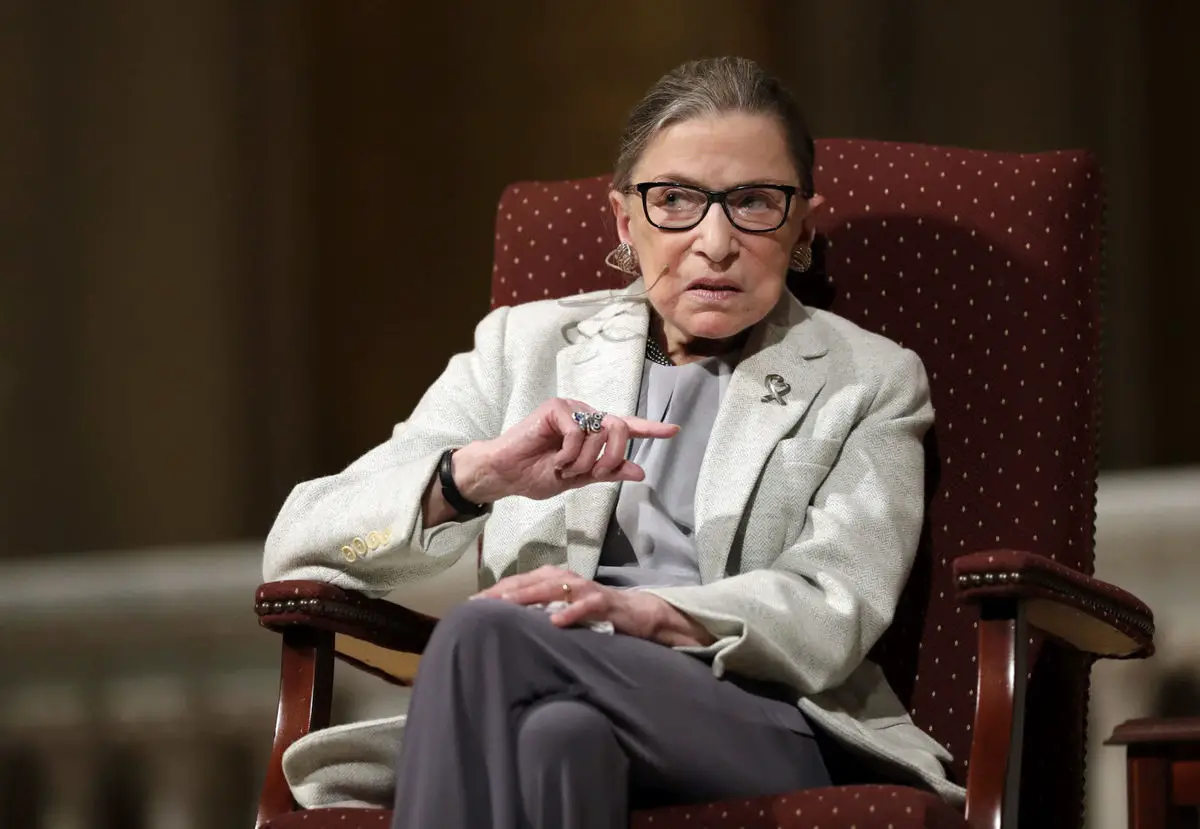When she spoke to The Atlantic’s Jeffrey Rosen about the #MeToo movement, Supreme Court Justice Ruth Bader Ginsburg mentioned that she was all for the attention the movement was getting and the discussions that followed.
However, she admitted that she had concerns about protecting the due process rights of individuals accused of sexual misconduct on college campuses in the modern approach to Title IX.
“There’s been criticism of some college codes of conduct for not giving the accused person a fair opportunity to be heard,” Ginsburg said, “and that’s one of the basic tenets of our system…everyone deserves a fair hearing.”
Part of the Education Amendments of Act of 1972, Title IX is a federal law asserting that “No person in the United States shall, on the basis of sex, be excluded from participation in, be denied the benefits of, or be subjected to discrimination under any education program or activity receiving Federal financial assistance.”
All public and private institutions receiving federal funds — including federal financial-aid programs for students — must adhere to the law.

One of the critics of Title IX’s modern approach under the Obama administration was Betsy DeVos, who, in September 2017, delivered a speech to George Mason University about reining “in the federal guidance compelling colleges to adjudicate sexual assault disputes between students.”
She went further to accuse the previous administration of using federal regulations against students: “Through intimidation and coercion, the failed system has clearly pushed schools to overreach,” DeVos said.
DeVos also thinks that public scrutiny is necessary. Her speech declared that the Education Department “will seek public feedback and combine institutional knowledge, professional expertise and the experiences of students to replace the current approach with a workable, effective and fair system.”
Despite DeVos’s pushback, students accused of misconduct may still face allegedly biased investigatory procedures that put the victim’s needs over the accused.
For instance, DeVos and Ginsburg find several aspects of the current procedure for addressing sexual assault on campus to omit key tenets of due process, such as accused students’ inability to confront their accuser, their lack of access to crucial information about their charges and more.

Opponents of Title IX under the Obama administration see these procedures as highly “victim-centered,” though supporters argue that due process should take a backseat when it comes to preventing rape.
Much like Ginsburg worried about the accused’s opportunity to properly and effectively defend their selves, Robby Soave of Reason argues that “We owe it to victims and to the accused to provide a fairer system that actually achieves a measure of justice for all involved.”
For more #MeToo and Title IX coverage, click here.
















